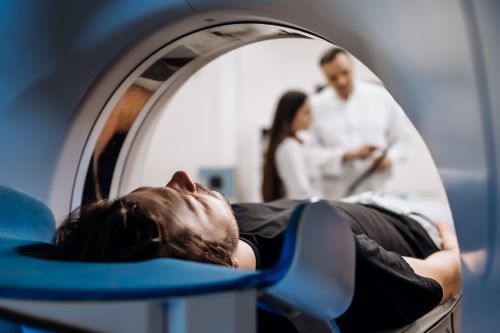At Georgia Spine & Orthopaedics, we specialize in providing expert care for joint pain, fractures, orthopedic conditions, and neurological issues. Our team prioritizes conservative and non-invasive treatments before considering surgery, ensuring the best possible outcomes for our patients. We focus on areas such as workplace injuries and motor vehicle collision recovery, using a multidisciplinary approach that includes advanced diagnostics, targeted interventions, and rehabilitative therapies. Our services range from orthopedic care and pain management to neurology, helping patients alleviate pain, restore function, and improve their overall well-being.
If you’ve been injured on the job, you may be wondering, “Can workers’ comp force you to see their doctor?” Workers’ comp laws vary by state, but in many cases, employers have the right to choose the initial treating physician or provide a panel of approved doctors for injured employees. However, you may still have options to change physicians, seek a second opinion, or even use your own doctor under certain circumstances.
In this blog, we’ll explore Georgia’s workers’ compensation rules on choosing a doctor, changing physicians, and seeking a second opinion, and how visiting an experienced workers’ compensation doctor at Georgia Spine & Orthopaedics can help ensure the best possible care for your recovery.
Understanding the Panel of Physicians in Georgia
In Georgia, the workers’ compensation system requires employers to provide a panel of physicians for injured workers. This panel is essential for ensuring that employees receive appropriate medical care after a workplace injury.
Overview of Georgia Law Requirements for a Panel of Physicians
Georgia law mandates that employers must create a panel of at least six physicians. This panel must include a variety of medical professionals to cater to different types of injuries. The law ensures that injured workers have access to qualified healthcare providers while also protecting employers from excessive medical costs.
Composition of the Panel: Six Doctors, Including an Orthopedic Physician and Industrial Clinics
The panel typically includes at least one orthopedic physician and may also consist of specialists from industrial clinics. This variety allows injured workers to receive specialized care tailored to their specific injuries. The inclusion of different types of doctors ensures comprehensive treatment options for various workplace injuries, enhancing the chances of a full recovery.
Can Workers’ Comp Force You to See Their Doctor?
Injured workers have the right to select a doctor from the provided panel for their initial treatment. This choice is crucial because it allows employees to feel comfortable and confident in their medical care. Workers should review the panel and choose a physician who they believe will address their medical needs effectively. If workers do not select a doctor from the panel, they may risk losing their workers’ compensation benefits.
Limitations on Selecting Your Own Doctor
In Georgia, workers’ compensation law allows employers to preselect medical care providers. This means that when you report a workplace injury, your employer will provide you with a panel of physicians. This panel typically includes six doctors, including specialists like orthopedic physicians and those from industrial clinics.
Employer’s Role in Preselecting Medical Care Providers
Employers have the right to establish a panel of physicians from which injured workers must choose their initial treating doctor. This panel is designed to manage medical expenses and ensure that employees receive appropriate care. It’s important for you to understand that once you choose a doctor from this panel, you are generally required to continue treatment with them.
Conditions Under Which an Employee Can Choose a Different Doctor
While your employer provides a panel, there are specific conditions that allow you to seek treatment from a different doctor. If you wish to change your treating physician to one not on the panel, you may need to meet certain criteria:
- Written Notice: You must provide written notice to your employer and the insurance company.
- Justifiable Reasons: You may need to demonstrate a valid reason for the change, such as inadequate treatment or a lack of communication from the authorized treating physician.
- Approval Requirements: In some cases, you may need approval from the insurance company before changing doctors.
Changing Your Authorized Treating Physician
In Georgia, injured workers have specific rights regarding their authorized treating physician (ATP). Understanding these rights is crucial for ensuring you receive the best possible medical care after a workplace injury.
Employee Rights to Change Treating Physicians
In Georgia, you can change your authorized treating physician without prior authorization from your employer or their insurance company. This means that if you are unhappy with the treatment you are receiving or feel that your needs are not being met, you have the right to seek a different doctor. It is important to notify your employer or the insurance company about this change to ensure that your new doctor is recognized for your workers’ compensation claim.
Process for Additional Changes and the Role of the Insurance Company
If you wish to change your treating physician again after your initial change, the process can be slightly different. You must notify your employer and the insurance company of your intent to change doctors. They may require you to follow specific procedures, such as providing documentation or justifying your reasons for the change.
The insurance company plays a role in approving your new physician, but as long as you follow the necessary steps, they cannot deny your request arbitrarily. Keep in mind that you have the right to seek the best possible care for your recovery. Always document any communications and keep records of your medical treatment to support your case if needed.
The Role of the Authorized Treating Physician
The authorized treating physician (ATP) plays a crucial role in the workers’ compensation process in Georgia. This physician is responsible for managing your medical care after a workplace injury. Understanding their responsibilities and privileges can help you navigate your treatment options.
Responsibilities of the Authorized Treating Physician
The ATP must provide appropriate medical treatment for your work-related injury. This includes:
- Evaluating your condition and creating a treatment plan.
- Documenting your medical history and progress.
- Communicating with your employer and the insurance company about your treatment and recovery.
The ATP must follow the guidelines set by the workers’ compensation system. This ensures that you receive necessary care while adhering to legal requirements.
Privileges of the Authorized Treating Physician
As the ATP, this doctor has specific privileges that impact your case:
- They determine the extent of your injuries and your ability to return to work.
- They can recommend light duty or modified work if applicable.
- They assess your need for further medical treatment or rehabilitation.
Impact on Work Status
The ATP’s evaluations have significant implications for your work status. They can provide medical releases that allow you to return to work, either full-time or with restrictions. If your injury results in permanent partial disability, the ATP will play a key role in assessing your condition and determining the appropriate benefits.
Independent Medical Evaluation: Your Right to a Second Opinion
In Georgia, you have the right to request an Independent Medical Evaluation (IME) if you believe the treatment you are receiving is inadequate or if you seek a second opinion. This evaluation can provide you with an unbiased assessment of your condition and treatment options.
Conditions for Requesting an Independent Medical Evaluation
You can request an IME under specific conditions. If you disagree with the diagnosis or treatment plan from your authorized treating physician, you can seek an IME to get another perspective. Additionally, if you feel your current treatment does not meet your needs, this evaluation can help clarify your options.
It’s essential to document your reasons for the request clearly. This documentation may include notes on your symptoms, treatment history, and any concerns you have about your current care.
Insurance Carrier’s Obligation to Cover the IME Costs
The insurance carrier is generally responsible for covering the costs associated with the IME. This coverage includes the fees for the evaluation itself and any necessary follow-up treatments that may arise from the findings of the IME. However, it is crucial to ensure that the IME is conducted by a physician who is approved by the workers’ compensation board.
If the insurance company denies your request for an IME, you may need to appeal their decision. A workers’ compensation attorney can assist you in navigating this process and ensure that your rights are protected.
Visit Georgia Spine & Orthopaedics For Your Workplace Injuries!
If you’ve been injured on the job and need expert medical care, our team at Georgia Spine & Orthopaedics is here to help. With top-rated specialists in orthopedics, pain management, and neurology, we provide comprehensive treatment to get you on the road to recovery.
Schedule an appointment with us today at 678-929-4494!






